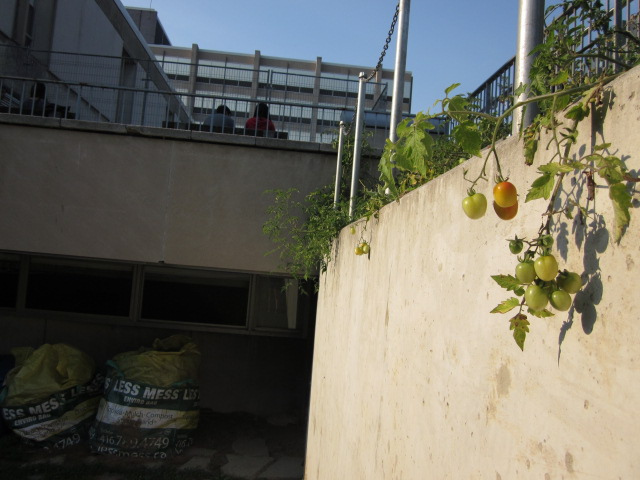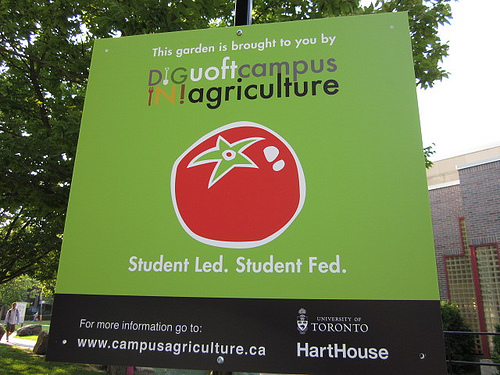Through my environmental studies, it became clear that the way we use space is often far from its maximum potential. I also came to realize that changing the way we approach an area can increase what it provides us. When I first toured DICAN’s projects I was shocked to find the plots - which I walked by every weekday dismissing them as simple aesthetics - actually represented something far more than just greening space on campus. They are a reminder that nature and the city are not separate.
DICAN manages and maintains four Demonstration Gardens on campus around Sidney Smith, Willcocks Commons, Hart House and the Medical Science Building. Donated by U of T administration and Hart House, these spaces allow the collective to provide educational classes on how students can get involved with the growing food movement. The plots not only allow urban foodies to find one another and connect, but give them the space for gardening since many lack access to suitable land.

We have transformed these areas into productive, vegetable producing spaces. Events such as seed exchanges and lessons on everything you need to know about home gardening are organized creating hands-on experiences for students. Through these we raise awareness at U of T about urban agriculture and how it relates to sustainability, food security, environmental policy, and community development.
We abide by our slogan, “Student Led – Student Fed”. What I mean by this, is that some of the produce that is harvested from these gardens is donated to one of Dig In’s allies, the student-run vegan collective Hot Yam, which provides affordable, nutritious and organic meals. This cooperative is a savior for students on a budget as it provides delicious seasonal meals for only four bucks, and is the preferred meeting spot for my friends and I to have lunch.

Although at first it may seem like urban agriculture and urban forestry are two quite different movements, they are actually part of a connected ecosystem. Urban agriculture strengthens our urban forests by providing important ecological functions such as pollination and soil regeneration. At DICAN we understand the intimate relationship, which is why we work with on campus with groups such as The U of T Beekeeping Education Enthusiast Society (B.E.E.S.) and have started our own Compost Action Team to help provide essential forest functions within the city.
Within the past year, there has been a significant increase in the amount of students interested in our work, showing the success of our collective. I look forward to see what innovative ideas that new members of our ecological community will propose and where projects can extend beyond the campus.
Denna Berg, is the Community Food Animator at DICAN. She is in her final semester at the University of Toronto with a double major in Environmental Policy and Practice and Environmental Geography.
